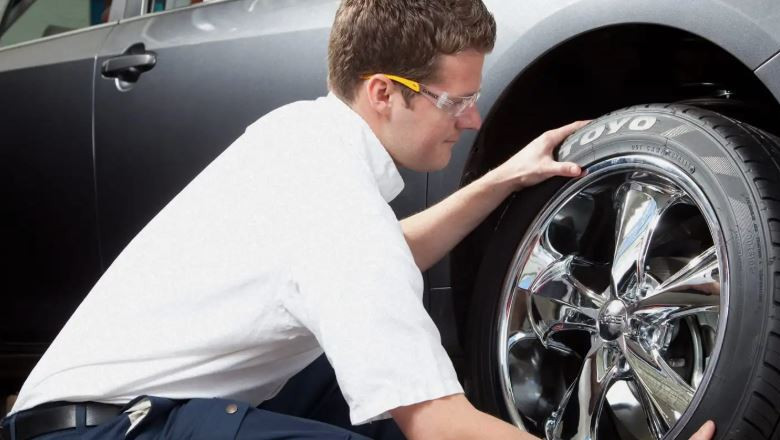views
Maintaining a vehicle isn’t just about oil changes and brake inspections—it's about paying attention to the small details that keep everything running smoothly. One crucial maintenance task often overlooked is tire balancing. Skipping tire balancing doesn’t just lead to a bumpy ride; it can destroy your car over time and drain your wallet faster than you realize.
If you ever find yourself dealing with a car that's beyond repair because of neglected maintenance, services like Cash For Cars can offer a simple way to sell it quickly. However, wouldn’t it be better to protect your investment as long as possible? Let’s dive into how ignoring tire balancing can cause serious problems for your vehicle—and your budget.
What is Tire Balancing, and Why Does it Matter?
Tire balancing ensures that the weight of your tire and wheel is evenly distributed around the axle. Technicians use specialized machines to identify imbalances and add small weights to even things out.
When tires are not properly balanced, several issues start to appear:
-
Uneven Tire Wear: Imbalanced tires wear out faster on one side, meaning you’ll need to replace them much sooner than expected.
-
Vibration and Noise: You’ll feel vibrations in the steering wheel, floorboard, or seats, making every drive uncomfortable.
-
Stress on Suspension: Constant vibrations put extra strain on your suspension system, leading to premature wear and costly repairs.
-
Poor Fuel Economy: Your engine has to work harder to maintain speed, which burns more fuel.
In short, skipping tire balancing accelerates vehicle deterioration across multiple systems.
Signs Your Tires May Be Out of Balance
It’s not always obvious when your tires are out of balance, especially at first. Here are some warning signs you shouldn’t ignore:
-
Steering wheel shaking, particularly at higher speeds
-
Uneven or scalloped tire tread wear
-
Strange noises while driving
-
Poor handling or pulling to one side
Addressing these issues early can save you thousands of dollars in repairs and extend the life of your vehicle.
The Financial Fallout of Skipping Tire Balancing
While it might seem like you’re saving money by avoiding regular tire balancing, the opposite is true. Here’s how neglect can hit your wallet hard:
-
Tire Replacement Costs: New tires aren’t cheap. Uneven wear means you’ll be replacing them much more frequently.
-
Suspension and Steering Repairs: Imbalanced tires put extra stress on parts like shocks, struts, and ball joints. These repairs can easily run into thousands of dollars.
-
Fuel Costs: With decreased fuel efficiency, your monthly gas bill creeps up without you even realizing it.
-
Reduced Resale Value: A car that drives poorly and looks neglected fetches a much lower price. Eventually, if the damage is too severe, you might need to consider a auto wreckers in Townsville
-
service to get rid of it.
Ultimately, what feels like a small, insignificant task—balancing your tires—plays a major role in your vehicle’s longevity and value.
How Often Should You Balance Your Tires?
Experts recommend checking tire balance every 5,000 to 7,000 miles—or whenever you notice symptoms of imbalance. Ideally, tire balancing should be part of your regular maintenance routine along with rotation and alignment services.
Also, every time you get a new set of tires or repair a puncture, ensure the technician balances the tire before reinstalling it. Preventative care today saves you from major headaches tomorrow.
Conclusion: Small Step, Big Savings
Tire balancing might seem minor, but skipping it can lead to major financial consequences. From excessive tire wear and suspension damage to decreased fuel economy and reduced resale value, the costs add up fast.
Taking the time—and spending the small fee—to balance your tires regularly is one of the smartest ways to protect your vehicle and your wallet. Ignoring it, on the other hand, could eventually leave you with a car so damaged that your best option is calling a Cash For Cars service to haul it away.
Be proactive. Pay attention to the small details. Your car (and your bank account) will thank you for it.













Comments
0 comment